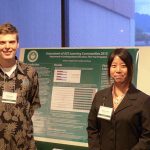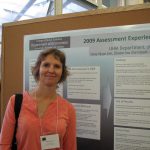Introduction to Program Learning Assessment for Graduate Students
This workshop is collaboratively presented by the Assessment Office and Graduate Education Office. Graduate students have a great …

This workshop is collaboratively presented by the Assessment Office and Graduate Education Office. Graduate students have a great …
This workshop will help undergraduate programs complete the new question on the annual assessment report that asks them …
This workshop is an introduction to the Curriculum Map: it is a graphical illustration of the relationship between …
In this workshop, the presenters will take participants through a step-by-step procedure to create surveys about student learning …
This workshop lets participants evaluate their programs’ learning outcomes (SLOs) related to critical thinking, problem solving, oral communication, …
This workshop looks into what learning outcomes are and how they can enhance student learning. PowerPoint and Handout …
This workshop is an introductory tour of the what, why, and how of learning outcomes and curriculum maps designed for faculty and …

This poster exhibits the outcomes assessment practices of the BA in Second Language Studies program. While engaging in …

The Public Administration Program offers a Master’s of Public Administration (MPA) degree. Currently our program is 30 credits, …

Access to College Excellence (ACE) at UHM provides a series of first year programs that serve approximately 25% …

The Political Science faculty modified existing departmental, undergraduate student learning outcomes (SLOs), which informed assessment development and curricular …

The poster describes the Department of Civil and Environmental Engineering’s process of assessing program outcomes. The steps in …

The learning objectives of the undergraduate program in economics include economic literacy, critical thinking, quantitative reasoning, and ability …